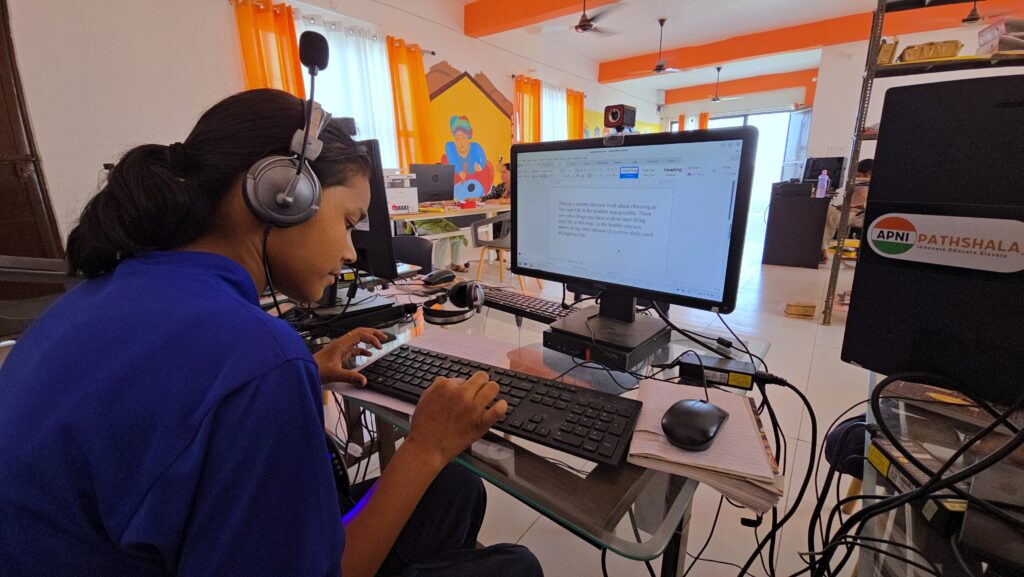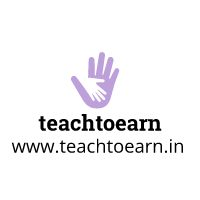In today’s hyper-competitive academic environment, most parents are racing behind board exam marks, Olympiad medals, and coaching class ranks. But somewhere along the way, we’ve forgotten something equally—if not more—important: soft skills.
Skills like communication, critical thinking, collaboration, empathy, time management, and self-confidence are what truly prepare children for the real world. Unfortunately, traditional schools and commercial tuition classes like BYJU’S and Physics Wallah are still stuck in a “topper-first” mindset, where these crucial life skills take a backseat.
That’s where community microschools and digital learning pods step in. Let’s listen to a conversation between two parents—Neha and Aarti—who are on very different ends of this journey.

Neha: (sipping chai in the park) Aarti, I just don’t know what else to do. I’ve enrolled Aarav in Physics Wallah’s online batch, extra math tuition, and even English grammar coaching. But he’s still shy, distracted, and honestly… unhappy.
Aarti: Hmm. You know, Neha, I was in the same boat a year ago. My daughter Meher was juggling three tuition classes after school. Great marks, but zero confidence in speaking up. That’s when I discovered something totally different—community microschools.
Neha: Microschools? Like a small school inside a society?
Aarti: Not exactly a school. Think of it as a learning pod—a small group of kids from the neighborhood who come together to learn, but not the way schools teach. No blackboards. No “repeat after me.” They use a PC full of educational videos, activities, games, and real-life projects. And best of all—it’s peer-led and curiosity-driven.
Neha: That sounds… fun? But what about syllabus? Exams? Career?
Aarti: See, that’s the trap we’re all in. These coaching apps promise to “make your child a topper.” But all they really do is convert learning into spoon-feeding. They don’t help kids learn how to think, how to speak, or how to solve problems independently.
In Meher’s pod, she’s now building a game in Scratch, helps younger kids learn English through storytelling, and even planned a community cleanliness drive!
Neha: Wait—how does that help with studies?
Aarti: That is studying! She’s improving her typing, writing, creativity, leadership—and yes, even math. But in a way that feels meaningful to her. Not because a teacher is yelling at her with a stick.
And you know what’s amazing? These soft skills—like presenting her idea, negotiating with friends, and managing time—are what companies look for when hiring. Not just a 99% in chemistry.
Neha: True… Aarav still can’t talk to his cousins without looking nervous. I’ve blamed him for being “lazy,” but maybe the environment is the issue.
Aarti: Exactly. These big edtech platforms are just factory models scaled digitally. They sell “personalized learning,” but it’s the same pre-recorded videos for every child. Real personalization happens when a mentor sits beside the child and asks: “What do you want to learn today?”
Neha: So who teaches in these pods?
Aarti: Not “teachers.” They’re called facilitators. Even I took up a basic training from Teach to Earn and started one in our society room. You don’t need a B.Ed. You just need the will to support learning. The computer and content do most of the work.
And trust me—it’s so fulfilling to watch kids grow, not just in marks, but as humans.
Neha: It sounds too good to be true. Is it expensive?
Aarti: That’s the best part. One PC from Teach to Earn costs just ₹9,999—and it’s loaded with all kinds of learning apps: Khan Academy, coding, typing, spoken English, general knowledge… even AI tools like CoTutor and Beyond Exams.
Compare that to a year-long BYJU’S subscription that costs ₹50,000+. And half the kids just click “next” without actually understanding anything.
Neha: Hmm. And the kids don’t get bored?
Aarti: Nope. Because they are in charge of their learning. One child might be editing a video, another building a robot using YouTube tutorials, while two others are helping each other solve puzzles. It’s noisy. It’s messy. But it’s real learning.
Neha: What if I wanted to start one? I have space at home and 6–7 kids in the building who could use something like this.
Aarti: That’s exactly how it starts. Reach out to Teach to Earn—they help you set up everything. PC, training, even posters and onboarding kids. It’s a revolution—and it starts with parents like us who say: “Enough with commercial education. Let’s give kids their childhood back.”
Neha: I love this. Honestly, for the first time I feel hopeful. Not pressured. I want Aarav to learn because he loves to, not because he’s afraid of failing.
Aarti: Then start your own pod, Neha. You’ll be amazed at how much both you and your child grow through the process.
Ready to Start a Learning Revolution?
If you believe your child deserves more than rote learning, if you’re tired of commercial coaching factories, and if you want to build confidence, creativity, and compassion in your child— 👉 Start your own Teach to Earn Digital Learning POD today!
